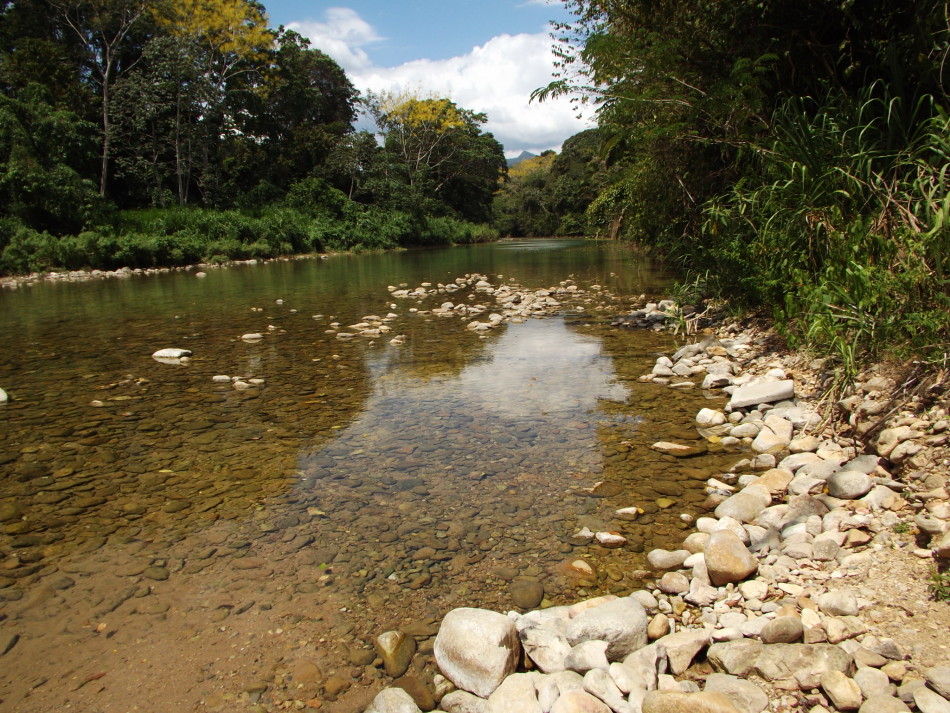It’s true. BFREE needs you.
I’m writing to you today to ask for your help. BFREE needs your support to expand our efforts to promote the stewardship and conservation of Belize’s natural resources.
The BFREE field station and the 1,153 acre private reserve are bordered on three sides by protected wilderness areas. These surrounding areas remain healthy but are under direct and constant threat of encroachment, due to a growing population, extraction of natural resources such as hardwoods, poaching of wildlife, mining and petroleum extraction, and ever-expanding agricultural lands. As we explained in The Bladen Review, Belize is being deforested at an alarming rate – during 2013, the country was stripped of an estimated 9,290 hectares of forests, and forest cover has diminished from nearly 75% in 1981 to 60.7% in 2014. Our work to conserve Belize’s natural resources is unique in the country. There is no other organization in Belize who has the capacity to do the work that we do.
Through our diverse programming, BFREE promotes the conservation of Belize’s wilderness areas. From study abroad experiences and internships for students from the US and other countries, field trips for primary school kids in Belize, to the production of books and documentary films, BFREE educates individuals and encourages stewardship of these precious lands and the resources they contain. We implement species-level projects (such as the Hicatee Conservation and Research Center, which is working to save the critically endangered Central American River Turtle, Dermatemys mawii, from extinction) as well as land-scape level projects (such as the Belize Cacao-based Agroforestry Restoration Project (BCARP), a program geared toward forested-farming to promote habitat protection beneficial to both people and wildlife).
We recognize that there is no single solution and no magic pill to stop the clearing of rainforest and loss of biodiversity. However, we also recognize that everything we do plays a role in shifting the way individuals, communities, organizations, and governments think about, interact with, and impact the forests.
Those of you who have had the opportunity to visit BFREE, you’ve seen the forest and its wildlife first-hand, for those who haven’t, please take a minute to imagine yourself in the rainforest of Belize.
You are standing barefoot in the Bladen River enjoying its refreshing coolness on this hot, humid morning. You’re startled by a surprising nip on your toes and look down to discover a school of tiny, but motivated, Billum fish darting around your feet trying to determine if you are, in fact, edible. The sky overhead is brilliant blue, but there is a low rumbling in the distance and you look upstream in the direction of the sound, to see rain clouds building over Wright’s Peak, signaling a storm will soon follow that will excite the fish and frogs into action.
Downstream, two Belted kingfishers dart from bank to bank in search of breakfast, and a rustle in a stand of nearby Cecropia trees draws your attention to a small troop of lazy Howler monkeys who slowly begin their powerful chorus. Feeling thirsty, you kneel to scoop a handful of water and put it to your lips because yes, you can still drink the water that flows crystal clear from the headwaters of these ancient Maya Mountains- knowing all the while that somewhere nearby, a Jaguar is doing the very same.
This precious place is one of the last strongholds for numerous endangered plants and animals. These flora and fauna have intrinsic value and help mitigate climate change by sequestering carbon, by providing clean air and clean water for the world, and by providing the source for countless medicines and foods used across the planet. Over half of the world’s species live in rainforests although rainforests now cover less than 2% of Earth’s surface.
In the media today, there is tremendous focus on the negative, intolerance, and hatred, but very little focus on the beauty and preciousness that is the natural world. As a species, we should put more energy toward caring about one another and the planet. It is this belief that drives our work. And to this end, we are asking you, our long-time friends and supporters, to contribute. With your donations, you have the opportunity to make a direct and positive impact on the long-term sustainability and institutional capacity of BFREE, directly translating to the conservation of the largest continuous expanse of tropical rainforest north of the Amazon!
Please consider supporting us with a donation of any amount. Your help truly makes a difference.
In conservation and stewardship,
Jacob A. Marlin
Jacob A. Marlin, Executive Director
P.S. US for BFREE is a 501(c)3 registered non-profit organization. All donations are tax-deductible.

